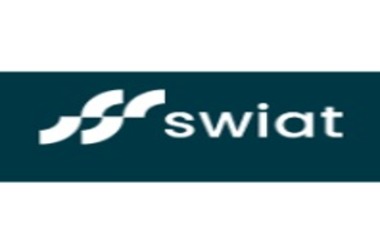Blockchain-focused fintech firm SWIAT, headquartered in Germany, has achieved a significant milestone by enabling financial institutions to issue crypto fund units on its blockchain platform. This development represents a pioneering step in the integration of blockchain processes into the fund life cycle, with Deka Investment, a prominent German fund provider, leading the way.
SWIAT Facilitates Debut Blockchain Implementation:
In a groundbreaking move, Deka Investment utilized SWIAT’s blockchain to issue shares in the crypto special fund A-Deka-BlockchainEINS. This marks the initiation of blockchain processes within the fund life cycle, with key fund operations, including share certificate processing and fund closure, being piloted on SWIAT’s blockchain. DekaBank assumes the role of the depository for this groundbreaking transaction.
Advancements in SWIAT’s Blockchain Security Offerings:
SWIAT, having previously introduced digital bearer bonds and digitally registered bonds, has extended its blockchain capabilities to mature another type of security – the issuance of crypto fund units. In the burgeoning crypto funds sector, SWIAT employs blockchain technology to tokenize fund share certificates, providing a compliant solution that ensures adherence to capital market laws, compliance, and regulatory requirements for users like DekaBank.
Strategic Goals and Collaborations:
SWIAT’s strategic vision involves collaborating with global financial institutions to establish an international standard for digital asset issuance. In 2024, the company plans to onboard additional partners onto its blockchain, expanding the ecosystem’s applications in securities business, including real-time settlement and collateral management. Future prospects encompass the digital issuance of shares in mutual funds and e-shares.
Participation in ECB’s Toolbox Experiment:
In a bid to explore the potential of blockchain in settling financial transactions, SWIAT, along with its partners, actively participates in the European Central Bank’s Toolbox Experiment. The goal is to enable institutional investors to initiate real-time delivery versus payment transactions on the SWIAT blockchain. This initiative aims to reduce counterparty risks and streamline internal coordination requirements for banks.
Positive Responses and Future Plans:
Representatives from SWIAT expressed their satisfaction with the successful launch of crypto fund units, highlighting plans to integrate additional partners and solutions in 2024. Deka Investment officials emphasized the significance of embracing blockchain technology in the fund business, expressing their intent to incorporate blockchain in various fund processes.
Global Standard and Anticipation of Growth:
SWIAT envisions establishing a global standard for processing blockchain-based securities on its platform. The company underscores the importance of compliance with capital market laws and regulatory requirements during the conception phase. Anticipating the growing global significance of digital assets, SWIAT estimates a Compound Annual Growth Rate (CAGR) exceeding 60% for an open decentralized financial market in Europe, projecting a value exceeding EUR 3 trillion by 2030.
Conclusion:
SWIAT’s successful facilitation of crypto fund units on its blockchain platform signifies a pivotal moment in the financial industry. With strategic collaborations, advancements in blockchain security offerings, and active participation in experimental initiatives, SWIAT is positioned as a key player in shaping the future of decentralized financial infrastructure. The company’s commitment to compliance and its ambitious growth projections underscore its determination to lead the way in the evolving landscape of blockchain-based financial solutions.

